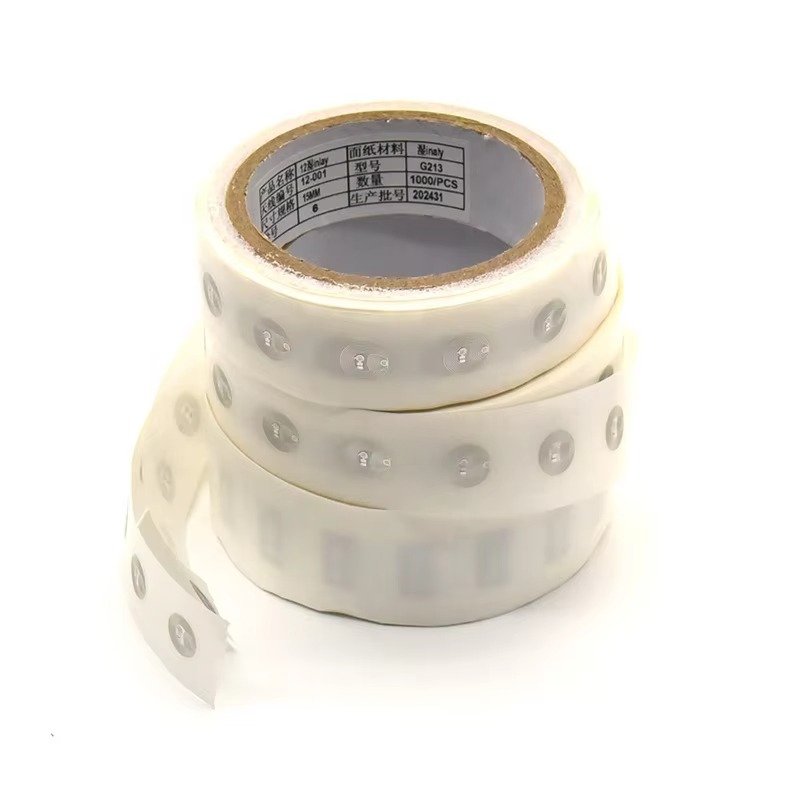
What is the production process of RFID tags
The creation of RFID tags involves a precise and efficient process, ensuring each RFID tag functions flawlessly. Here’s a breakdown of the key stages:
RFID tag technology has revolutionized how industries operate, and the food and beverage processing sector is no exception. The implementation of RFID tags is transforming traditional practices, enabling businesses to achieve higher levels of efficiency, safety, and management effectiveness.
One of the most significant impacts of RFID technology is the improvement of production efficiency. By utilizing RFID tags, companies can automate the tracking of materials and products throughout the manufacturing process. This automation reduces the reliance on manual data entry, which is often time-consuming and prone to errors. Instead, RFID systems can automatically capture data as items move through various stages of production, allowing for a seamless flow of information.
For instance, when raw materials arrive at a facility, RFID tags can be scanned to confirm receipt and automatically update inventory levels. As these materials are processed into semi-finished and finished goods, the RFID system continues to track their movement, providing real-time updates on production status. This level of automation not only speeds up the production process but also enhances accuracy, ensuring that companies have up-to-date information on their operations.
Additionally, RFID technology enables real-time monitoring of production conditions. Sensors integrated with RFID systems can track variables such as temperature, humidity, and processing times. If any deviations from predetermined parameters occur, alerts can be generated, allowing for immediate corrective actions. This capability is particularly crucial in the food and beverage industry, where maintaining specific conditions is essential for ensuring product quality and safety.
Food safety is a paramount concern in the food and beverage processing industry, and RFID technology plays a critical role in enhancing safety measures. The ability to trace products throughout their lifecycle—from raw materials to finished goods—provides companies with a powerful tool for ensuring quality and compliance.
By affixing RFID tags to product packaging, businesses can create a digital trail that documents every step of the production process. This traceability allows for quick identification of any potential issues, such as contamination or quality defects. In the event of a food safety crisis, companies can swiftly locate affected products, facilitating efficient recalls and minimizing risks to consumers.
Moreover, RFID technology supports compliance with regulatory requirements. Many regions have stringent regulations regarding food safety and traceability, and RFID systems can help companies meet these standards. By maintaining accurate records of production and distribution, businesses can demonstrate compliance during audits and inspections, thereby reducing the risk of penalties and reputational damage.
Efficient inventory management is crucial for the success of any food and beverage processing operation. RFID technology offers significant advantages in this area by providing real-time visibility into inventory levels and movements.
With RFID tags, companies can automate the tracking of inventory, reducing the likelihood of stock discrepancies and inaccuracies. As products are produced, shipped, or sold, RFID systems automatically update inventory records, providing an accurate picture of stock levels at any given time. This real-time data enables businesses to make informed decisions regarding production schedules, order fulfillment, and inventory replenishment.
Additionally, RFID technology can help prevent issues related to overstocking or stockouts. By analyzing inventory data, companies can identify trends and patterns in product demand, allowing for more accurate forecasting and planning. This proactive approach minimizes the risk of excess inventory, which can lead to spoilage and increased costs, while also ensuring that popular products are readily available for customers.
The food and beverage processing industry relies heavily on complex supply chains, and RFID technology can optimize these operations. By providing real-time visibility into the movement of goods, RFID systems enable companies to streamline their supply chain processes.
For example, RFID tags can be used to track shipments as they move through the supply chain, from suppliers to manufacturers and ultimately to retailers. This visibility allows companies to monitor delivery times, identify bottlenecks, and improve overall logistics efficiency. By analyzing data collected from RFID systems, businesses can make data-driven decisions to enhance supply chain performance.
Furthermore, RFID technology facilitates collaboration among supply chain partners. By sharing real-time data, companies can coordinate their efforts more effectively, ensuring that materials and products are available when needed. This collaboration leads to reduced lead times, improved order accuracy, and enhanced customer satisfaction.
In addition to improving efficiency and safety, RFID technology can also support sustainability initiatives within the food and beverage processing industry. By optimizing resource usage and reducing waste, companies can minimize their environmental impact.
RFID systems can help organizations track the consumption of raw materials, energy, and water throughout the production process. By identifying areas where resources are being used inefficiently, companies can implement measures to reduce waste and improve sustainability. For example, if RFID data reveals that a particular production line is consuming more energy than necessary, adjustments can be made to optimize energy usage.
Moreover, RFID technology can assist in managing the lifecycle of products, from production to disposal. By tracking the movement of products through the supply chain, companies can identify opportunities to reduce waste and promote recycling. This focus on sustainability not only benefits the environment but also enhances a company’s reputation among consumers who increasingly prioritize eco-friendly practices.
RFID technology also opens up new avenues for consumer engagement in the food and beverage processing industry. By leveraging RFID tags, companies can provide consumers with valuable information about the products they purchase.
For instance, consumers can scan RFID tag packaging with their smartphones to access detailed information about a product’s origin, ingredients, and nutritional content. This transparency fosters trust and allows consumers to make informed choices about the products they consume.
Additionally, RFID technology can support loyalty programs and personalized marketing efforts. By tracking consumer behavior and preferences through RFID systems, companies can tailor promotions and offers to individual customers, enhancing the overall shopping experience.
The integration of RFID tags in the food and beverage processing industry presents a multitude of benefits that enhance efficiency, safety, and management capabilities. By automating data collection, improving traceability, streamlining inventory management, optimizing supply chain operations, supporting sustainability initiatives, and facilitating consumer engagement, RFID technology is transforming the way businesses operate.
As the technology continues to advance, its applications within the food and beverage sector are expected to expand further, driving innovation and growth. Companies that embrace RFID technology will not only improve their operational performance but also position themselves as leaders in an increasingly competitive market. The future of the food and beverage processing industry is bright, with RFID technology paving the way for a more efficient, safe, and sustainable landscape.
Newest trends and common knowledge in RFID laundry tags.

The creation of RFID tags involves a precise and efficient process, ensuring each RFID tag functions flawlessly. Here’s a breakdown of the key stages:

RFID laundry tags enhance hygiene and infection control in the medical industry by improving the management of medical textiles, essential for healthcare facilities.

Our blank white NFC Stickers, featuring the advanced NXP NTAG215 NFC chip, are perfect for a wide range of applications.
Didn’t find what you want? Ask our manager for help!